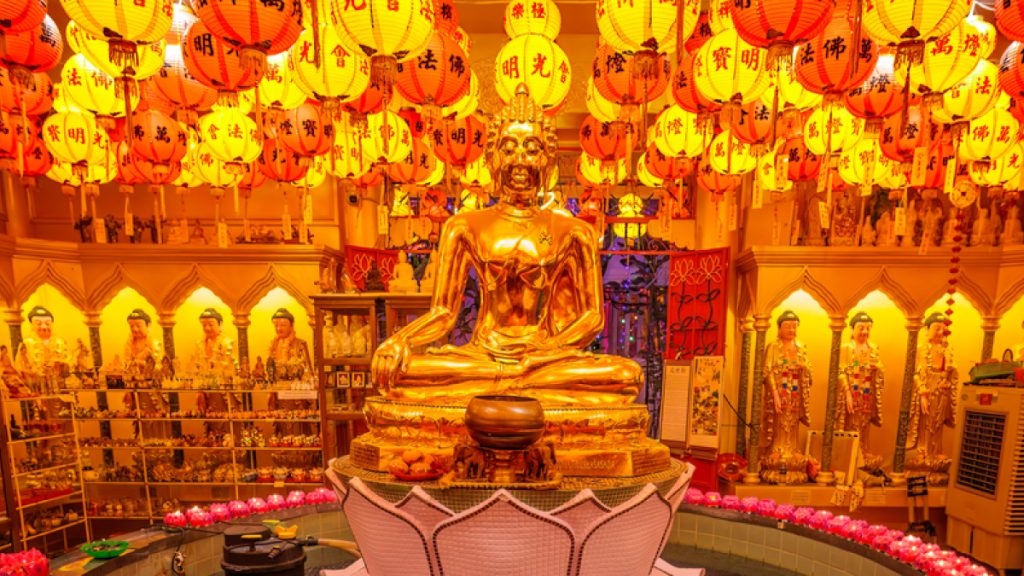Wesak Day, also known as Vesak or Buddha Purnima, is a significant Buddhist festival that commemorates the birth, enlightenment, and death of Gautama Buddha. In Malaysia, Wesak Day is a public holiday observed with various religious and cultural activities, reflecting the country’s rich Buddhist heritage. This auspicious day is marked by prayers, meditation, and acts of kindness, promoting peace and harmony within the community.
Wesak Day Dates (2024-2027)
| Year | Date | Day | States Observed |
|---|---|---|---|
| 2024 | 23 May | Thursday | Nationwide |
| 2025 | 12 May | Monday | Nationwide |
| 2026 | 1 May | Friday | Nationwide |
| 2027 | 20 May | Thursday | Nationwide |
History and Background
Wesak Day is celebrated by Buddhists around the world to honour the life and teachings of Siddhartha Gautama, the founder of Buddhism. The festival’s origins can be traced back to ancient India, where it was first observed by Emperor Ashoka in the 3rd century BCE. In Malaysia, Wesak Day is an important occasion for the Buddhist community, which constitutes a significant portion of the population. The holiday was officially recognised in the country in 1962.
Malaysian Traditions and Cultural Significance
Prayers and Meditation
On Wesak Day, Buddhists in Malaysia visit temples to participate in special prayer sessions and meditation. These activities are meant to purify the mind, cultivate wisdom, and foster compassion. Monks deliver sermons that emphasise the teachings of Buddha, encouraging devotees to live virtuous lives.
Offerings and Acts of Kindness
Devotees make offerings of flowers, candles, and incense at Buddhist temples as a sign of respect and gratitude. These offerings symbolise the impermanence of life and the importance of mindfulness. Additionally, acts of kindness and charity, such as donating to the needy and freeing captive animals, are common practices on Wesak Day.
Bathing the Buddha
A unique tradition observed on Wesak Day is the ceremonial bathing of a Buddha statue. This ritual symbolises the purification of one’s thoughts and actions. Devotees pour water over the statue, reflecting their desire to cleanse their own lives of negative influences and cultivate positive virtues.
Processions and Cultural Performances
In many parts of Malaysia, colourful processions are held to celebrate Wesak Day. These processions often feature beautifully decorated floats, traditional music, and dance performances. Participants carry lanterns and images of Buddha, creating a festive and reverent atmosphere.
Wesak Day Celebrations Across Malaysia
Kuala Lumpur
In Kuala Lumpur, the Buddhist Maha Vihara temple in Brickfields is a central hub for Wesak Day celebrations. Thousands of devotees gather here to participate in prayers, meditation, and charitable activities. The temple also organises a grand procession through the streets of the city, drawing large crowds.
Penang
Penang, with its vibrant Buddhist community, hosts elaborate Wesak Day festivities. The Penang Buddhist Association and various other temples hold special ceremonies, and a significant procession takes place in George Town. The procession features floats, traditional music, and dance, showcasing the island’s rich cultural heritage.
Ipoh
In Ipoh, the Perak Buddhist Association plays a key role in Wesak Day celebrations. The city’s temples are adorned with decorations, and devotees engage in prayers, meditation, and community service. A procession through the city streets highlights the day’s significance.
Sabah and Sarawak
In East Malaysia, the states of Sabah and Sarawak celebrate Wesak Day with local customs that blend indigenous traditions with Buddhist practices. Temples in cities like Kota Kinabalu and Kuching organise prayer sessions, meditation, and community events to mark the occasion.
Conclusion: A Day of Spiritual Reflection and Community Harmony
Wesak Day in Malaysia is a profound celebration that underscores the spiritual and cultural richness of the country. It is a time for Buddhists to reflect on the teachings of Buddha, engage in acts of kindness, and foster a sense of community harmony. Through prayers, meditation, and charitable activities, Wesak Day promotes the values of peace, compassion, and wisdom, which are essential to the well-being of society.
Frequently Asked Questions (FAQs)
Is Wesak Day a public holiday in Malaysia?
Yes, Wesak Day is a public holiday in Malaysia, celebrated nationwide.
How do Malaysians typically celebrate Wesak Day?
Malaysians celebrate Wesak Day by participating in prayers, meditation, making offerings, engaging in acts of kindness, and joining processions and cultural performances.
What are some traditional foods eaten during Wesak Day in Malaysia?
While Wesak Day is primarily a religious and spiritual celebration, vegetarian meals are commonly prepared and shared among family and friends, in line with the Buddhist practice of non-harming.
What are popular destinations in Malaysia to experience Wesak Day celebrations?
Popular destinations include the Buddhist Maha Vihara temple in Kuala Lumpur, Penang Buddhist Association, and various temples in Ipoh, Sabah, and Sarawak, where elaborate ceremonies and processions are held.

